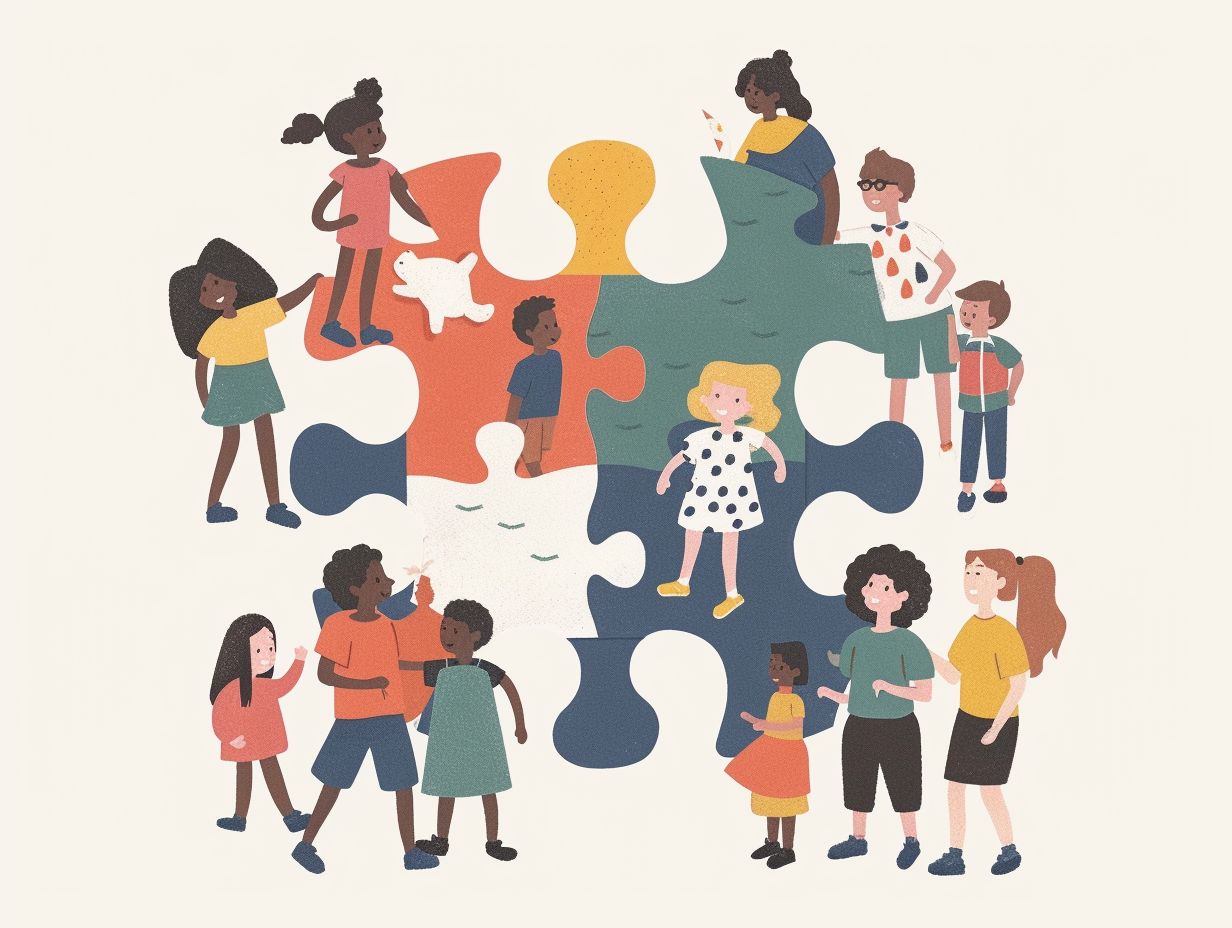The foster care system in Florida plays a crucial role in providing a safe and nurturing environment for children in need. In this article, we will explore how the system works, including the roles of the Florida Department of Children and Families, foster parents, and biological parents.
We will also discuss the requirements for becoming a foster parent in Florida, as well as the benefits and challenges that come with it. We will delve into the rights of children in foster care and ways that individuals can get involved in supporting Florida’s foster care system.
Join us as we uncover the intricacies of Florida’s foster care system and learn how you can make a difference in the lives of children in need.
Key Takeaways:
- The Florida foster care system is overseen by the Department of Children and Families and involves the roles of foster parents and biological parents.
- To become a foster parent in Florida, one must meet age and background check requirements and complete training.
- Foster parents receive financial benefits but also face emotional challenges. Children in foster care have rights to education, healthcare, and stability.
- People can get involved in supporting the foster care system through volunteering and advocating for reform.
How Does the Foster Care System Work in Florida?
The foster care system in Florida is structured to offer temporary homes for children who have been removed from their families due to abuse, neglect, or other safety concerns. The primary objective is to guarantee the well-being and permanency of each child under state supervision.
What is the Role of the Florida Department of Children and Families?
The Florida Department of Children and Families (DCF) oversees child welfare services, ensuring that children in foster care receive the necessary support and supervision to thrive in their temporary homes. This responsibility includes state supervision of foster care placements and coordination with community-based care lead agencies to ensure the safety and well-being of the children.
DCF also provides essential services such as case management to ensure that each child has a dedicated advocate navigating their care. Additionally, DCF plays a role in facilitating access to health insurance and other medical services for children in foster care, prioritizing their physical and emotional well-being.
What is the Role of Foster Parents?
Foster parents have a significant role in providing a safe and nurturing home environment for children who have been temporarily removed from their biological families. They are responsible for meeting the daily care needs of the children and participating in training programs to improve their caregiving skills.
Foster parents work closely with case managers and other professionals to ensure the well-being and development of the children. Establishing a supportive and stable home environment is crucial for the emotional and psychological growth of the children, helping them navigate challenges that may arise from their unique circumstances.
Foster parents often face challenges such as building trust with the children, managing complex emotions, and dealing with uncertainties related to the reunification process.
What is the Role of the Child’s Biological Parents?
In the foster care system, the role of the child’s biological parents is to strive for reunification by following the case plan established by the court and child welfare professionals.
This entails attending all court hearings related to the child’s case, actively engaging in the services recommended to address any underlying issues that led to the child’s removal, and consistently showing progress towards meeting the conditions specified in the case plan.
Reunification is the primary objective of the foster care system, with the aim of safely reuniting children with their biological parents once it is considered safe and in the child’s best interest.
To achieve reunification, parents must demonstrate a commitment to addressing the concerns that led to their child’s removal, such as substance abuse, neglect, or domestic violence, and exhibit their capacity to provide a safe and stable home environment for the child.
What are the Requirements to Become a Foster Parent in Florida?
For become a foster parent in Florida, individuals are required to meet certain criteria, go through a licensing procedure, and undergo a home study to verify their ability to offer a safe and supportive setting for children in need.
What are the Age Requirements?
Prospective foster parents in Florida must meet specific age requirements to ensure they have the maturity and stability needed to care for children.
The minimum age requirement for foster parents in Florida is 21 years old, as this age is generally considered to be a point at which individuals have developed the necessary life skills and emotional maturity to provide a stable environment for children in their care.
Older individuals, typically over 25 or even 30, are often preferred as they may have more life experience, financial stability, and are more likely to have already established stable family dynamics, which can greatly benefit the child’s well-being in a foster home.
What are the Background Check Requirements?
Background check requirements for potential foster parents are stringent to ensure the safety and well-being of children placed in their care.
These background checks typically involve thorough screenings, such as criminal history checks to uncover any past offenses that could pose a risk to children. Child abuse registry checks are performed to ascertain whether any potential caregiver has previously been involved in incidents of abuse.
Child protective investigators play a crucial role in this process by examining the findings of these background checks and making informed decisions regarding the suitability of individuals to become foster parents. Maintaining a safe environment for children is paramount, and these measures help to safeguard their welfare while in the care of foster families.
What are the Training Requirements?
Training requirements for foster parents in Florida aim to prepare them for the challenges of fostering and provide them with the necessary skills to offer effective care.
One primary training program utilized in Florida is the Model Approach to Partnership in Parenting (MAPP), which covers essential topics for foster parents. These topics include understanding the child welfare system, trauma-informed care, behavior management strategies, and cultural competence.
Through MAPP, foster parents are taught how to promote the well-being of the children in their care and develop positive relationships. Continuous education and support are crucial for foster parents to consistently improve their knowledge and skills, ultimately benefiting the children under their care.
What are the Benefits and Challenges of Being a Foster Parent?
Being a foster parent entails a distinct set of advantages and difficulties, such as financial assistance, emotional gratification, and the duty of tending to the intricate requirements of foster children.
What are the Financial Benefits?
Foster parents in Florida are provided financial benefits to assist with the expenses of caring for a child. These benefits include monthly stipends, adoption subsidies, and coverage through Medicaid.
The financial benefits play a critical role in offering essential support to foster parents as they navigate the responsibilities of raising a child in need. Monthly stipends are allocated to help cover basic necessities like food, clothing, and shelter. Adoption subsidies provide additional aid for long-term care requirements, while Medicaid coverage guarantees access to necessary healthcare services.
To qualify for these benefits, foster parents are required to undergo a comprehensive application process, which involves submitting documentation of their expenses and household income. Maintaining accurate financial records is crucial not only for eligibility purposes but also for ensuring transparency in the distribution of resources.
What are the Emotional Challenges?
Foster parents often encounter emotional challenges as they assist children who have undergone abuse or neglect and work towards reunification with their biological families.
The trauma experienced by children in foster care can manifest in various ways, necessitating foster parents to provide not only physical care but also emotional support. Observing the pain and uncertainty that these children endure can be emotionally draining for foster parents, who often develop strong bonds with their temporary charges.
Regardless of the ultimate objective of reuniting children with their birth families, the process can be intricate and filled with uncertainties. To navigate these challenges, foster parents are encouraged to utilize available support systems such as counseling services, peer support groups, and respite care options.
What are the Rights of Children in Foster Care?
Children in foster care are entitled to specific rights that are intended to safeguard their well-being and growth. These rights encompass access to education, healthcare, and a secure, lasting living environment.
What are the Rights to Education?
Children in foster care are entitled to receive a quality education that caters to their individual needs, including access to schools and educational resources.
Educational stability plays a vital role for foster children, offering them a sense of normalcy and routine during uncertain times. Ensuring these children can attend school regularly not only supports their academic growth but also nurtures their social and emotional well-being.
In cases where a foster child requires special education services, it is essential that these services are promptly provided to address any learning difficulties they may encounter. Programs such as the Road to Independence scholarship provide crucial financial assistance to help foster youth pursue higher education and reach their goals, ultimately breaking the cycle of disadvantage.
What are the Rights to Healthcare?
Children in foster care are provided with comprehensive healthcare services, often delivered through Medicaid, to cater to their physical, emotional, and mental health requirements.
These services are essential in guaranteeing that foster children get the required medical care and assistance they need. Medicaid is crucial for many of these children, providing coverage for preventive care, mental health services, and treatment for chronic conditions. Without adequate access to healthcare, these vulnerable children may encounter significant obstacles in managing their underlying health concerns.
It is crucial for caregivers and healthcare providers to collaborate in advocating for and prioritizing the healthcare needs of children in foster care.
What are the Rights to Stability and Permanency?
Children in foster care have the right to stability and permanency, which the child welfare system strives to achieve through reunification, adoption, or other permanent living arrangements.
Ensuring stability and permanency for foster children is crucial for their emotional well-being and development. Reunification with birth parents is often the first choice, as it allows the child to return to a familiar environment if it is safe and feasible.
In cases where reunification is not possible, adoption provides a permanent family connection. Permanent guardianship is another option that offers stability by placing the child with a caregiver who becomes legally responsible. These paths to permanency are guided and supported by courts and the child welfare system to ensure the best outcomes for children in need.
How Can People Get Involved in Supporting Florida’s Foster Care System?
There are various avenues for individuals to contribute to supporting Florida’s foster care system, such as:
- Volunteering
- Establishing community partnerships
- Advocating for policy reforms that improve the well-being of foster children and families
What are Some Volunteer Opportunities?
Volunteering opportunities in the foster care system encompass mentoring children, providing respite care for foster parents, and supporting local organizations that collaborate with foster families.
By serving as a mentor, individuals can have a significant impact on a child’s life by offering guidance, support, and a listening ear.
Respite care volunteers fulfill a vital role in giving foster parents essential breaks to rejuvenate. Supporting local organizations through fundraising, event planning, or administrative tasks helps ensure the availability of resources for foster families in need.
The positive impacts of volunteering in the foster care system extend through the community, providing stability and care for vulnerable children. The most crucial support required includes dependable mentors, respite care providers, and volunteers willing to advocate for foster care needs within their communities.
How Can People Advocate for Foster Care Reform?
Advocating for foster care reform involves raising awareness about the needs of foster children, supporting policies that improve the system, and building partnerships with organizations that can drive meaningful change.
Engaging with policymakers is an essential step in advocating for reforms in the foster care system. By communicating with government officials and lawmakers, individuals can bring attention to critical issues and push for policy changes that prioritize the well-being of foster children.
Participating in advocacy groups provides a platform for collective action and amplifies voices calling for improvements. Partnering with organizations focused on child welfare can offer valuable resources and expertise to support advocacy efforts, ultimately contributing to positive changes in the foster care system.
Frequently Asked Questions
What is Florida’s foster care system?
Florida’s foster care system is a network of state and local agencies, non-profit organizations, and foster families that provide temporary care for children who are unable to live with their birth families due to abuse, neglect, or other special circumstances.
Who can become a foster parent in Florida?
Individuals and couples who are at least 21 years old and have a stable income, a safe home, and a desire to make a positive impact on a child’s life can become foster parents in Florida. They must also undergo background checks and training.
How many children are in Florida’s foster care system?
As of 2019, there were over 24,000 children in Florida’s foster care system. This number fluctuates as children enter and exit the system, but the goal is always to find safe and permanent homes for each child.
What is the goal of Florida’s foster care system?
The goal of Florida’s foster care system is to provide children with temporary, safe, and loving homes while their birth families work towards reunification. If reunification is not possible, the system aims to find permanent homes for children through adoption or guardianship.
Do foster parents receive any financial support?
Yes, foster parents in Florida receive a monthly stipend to cover the basic needs of the child, such as food, clothing, and personal items. Medical and dental expenses are also covered by the state.
How can I get involved with Florida’s foster care system?
There are many ways to get involved with Florida’s foster care system. You can become a foster parent, volunteer with a local agency, donate to organizations that support foster children, or advocate for foster care reform. Every contribution helps make a difference in the lives of children in need.



























Rate this article:
Average rating 0 / 5. Vote count: 0
No votes so far! Be the first to rate this post.
No Comments yet!